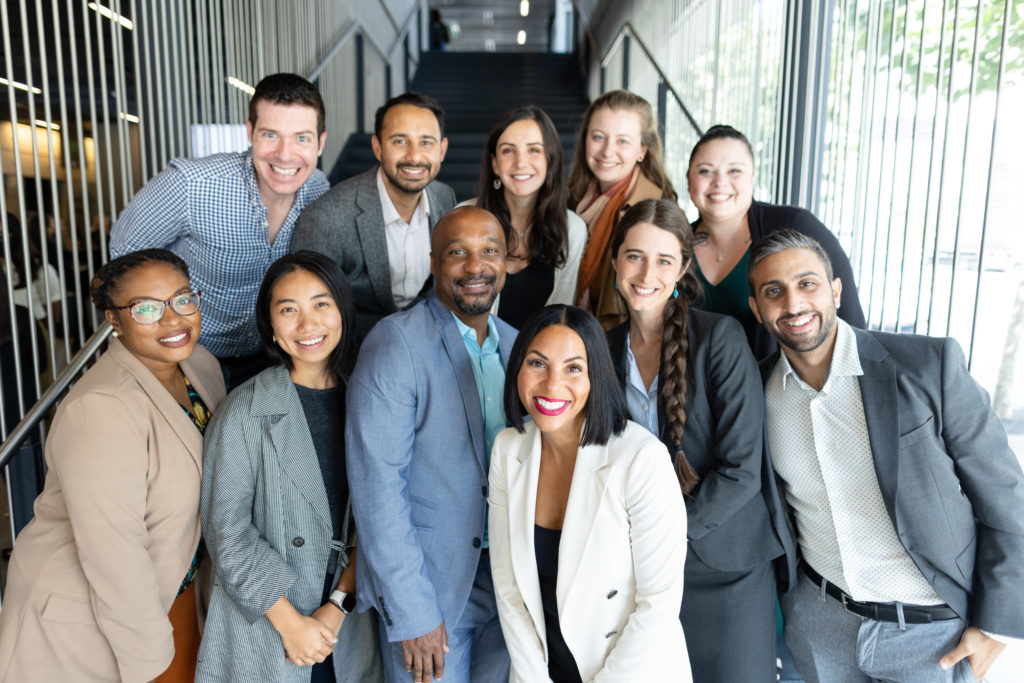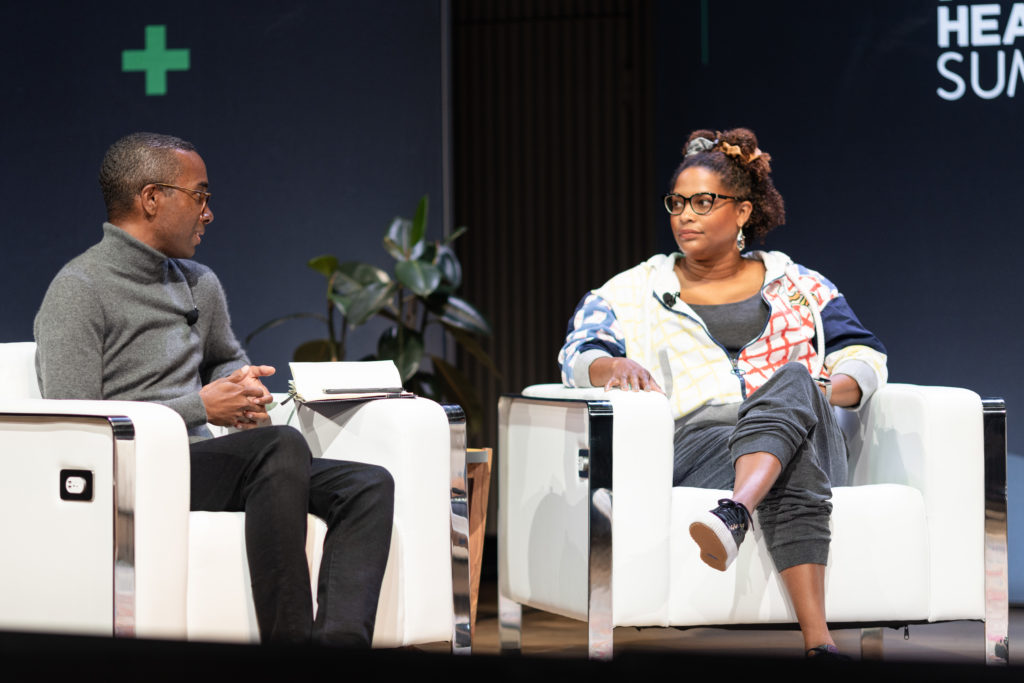Dare to redefine and reimagine: Reflections from Rock Health Summit 2022
Earlier in September, RockHealth.org was thrilled to host the Top 50 in Digital Health Awards and Rock Health Summit across the course of one action- and inspiration-packed week. It was an honor to convene digital health innovators to celebrate their work, engage in thought-provoking discussions, and nurture relationships that will accelerate the promise and potential of digital health.
Our time together kicked off on September 13th, with the Top 50 in Digital Health Awards where we celebrated 50 innovators that are working to make healthcare massively better for all. It was our honor to recognize these individuals for the work they do in healthcare as Equity Advocates, Storytellers, Frontline Heroes, Public Health Leaders, and so much more. Congratulations to this year’s honorees!
The following day, September 14th, we held the annual Rock Health Summit—a half-day event that brings together diverse minds from technology, medicine, and public health for inspired conversation and connection. Throughout the day’s programming, we held 6 sessions, heard insights from 40 expert speakers, and were joined by attendees from 14 countries and 35 states. We were also thrilled to be joined at the Summit by the 2022 Rock Health Summit Innovation Fellows—a dynamic group of thirteen emerging digital health leaders who are leading innovations in oncology support, Black women’s health, pediatric behavioral health, LGBTQ+ competency-based care, support for caregivers, and more.
Countless insights emerged from this year’s summit—below, we share three key threads that rose to the top for the RockHealth.org team. All three focus on how digital health can boldly move into the future while serving a broader array of people in increasingly diverse ways.
1. Elevate Lived Experience
Increasingly, patients are asking for a healthcare system that understands the nuances of their lived experiences. Lived experience can take many different forms—we had the opportunity to hear from panelists that work as direct care providers, serve as in-home caregivers, or manage an aspect of a community health network. From these speakers, we heard that the context of an individual’s experiences can be just as varied as the communities they represent. As Dr. Ivor Horn, Chief Health Equity Officer at Google Health stated, “Lived experience is expertise.” The ability to translate one’s life story and personal experiences into a viable approach that addresses the unmet needs of large population segments is powerful. However, underrepresented and underfunded innovators—those that identify as women+ or people of color—are often not given the opportunity to leverage this expertise, despite the fact that it is a key asset that can propel the growth of their startups.
Panelists also shared that when considering scale, lived experiences can also lend a competitive edge that is grounded in direct and long-term access to communication with end users. Throughout the Summit, panelists affirmed the need to support and encourage investing in lived experiences as meaningful inputs to understand and address the needs of increasingly diverse digital health users. Doing so supports the industry’s ability to meet the evolving needs of the digital health end-user population.

2. Focus On and Sustain Momentum
Funding setbacks within the market in the past two years have challenged innovators to think and act differently when approaching their planning and priorities around growth and customer needs. The pressure of the current market encourages the reliance on making short-term decisions to meet internal revenue needs, which might not benefit the organization or its intended impact on health outcomes in the long term. Panelists agreed that it’s brave to counter this environmental pressure and focus on business plans aiming for long-term priorities that may not bear fruit in the short term. For example, plans centering on the privacy and securities aspects of solutions may not have been supported two years ago, but are now seeing an opportunity to be embraced for their promise of longevity.
As panelist Yoona Kim, Founder and CEO of Arine described, this approach is an example of moving with velocity instead of speed. Kim explained that speed refers to simply pressing the gas, but velocity is pressing the gas but taking care to use a map. There are many long-term benefits to returning to this model of operation, including the opportunity to build for an organization’s true core competencies and customer needs instead of simply aiming for unrestricted growth. In moving towards healthy momentum and a healthier customer, this type of focused momentum opts for only strategic revenue opportunities with mission alignment and narrows in on the customer in all planning.
Panelists were hopeful about what the success stories of innovation will look like after the market has created space for a return to customer-centric models and newer models of pricing innovations. There was also mention of increased interest in affordability and inclusion as driving competencies of business models that are sustainable in providing community-centric care.

3. Design for Adoption
In digital health, there is a tension between building quickly relying on a standard user profile in the interest of speed—and building intentionally with communities with the ultimate goal of adoption. Building with communities is a comparatively slow, yet intentional exercise that builds trust and requires innovators to balance the role that they play as “solution developers.” Panelist, Carlos Rodarte, Co-Founder and President at Veriteos poignantly shared: “A digital health team needs to know when to step up, as well as when to step back and let the community lead.”
Community co-design moves past participatory design (i.e., advisory boards and workshops) and taps into community networks. The end result: community members who are both drivers and consumers of high-value, sustainable healthcare systems. It also enables a more expansive view of healthcare that reflects the lived experiences of patients, centers their health and wellbeing, and occupies less traditional spaces—such as real estate companies, labor unions, grocery stores, and pharmacies. It is in the end-to-end design of systems, that digital health holds the promise of reaching its full potential to make healthcare massively better for all—regardless of demographic factors. By shifting our focus from developing around a standard user profile to elevating the lived experiences of communities, we move past the typical adoption ceiling and harness the opportunity to disrupt the traditional healthcare system through innovation.

In closing out the week of celebration and community surrounding the Top 50 in Digital Health Awards and Rock Health Summit, we were grateful for the opportunity to once again gather with digital health leaders from around the country with the express purpose of advancing digital health promise and impacting an increasingly diverse patient population. We want to extend a special thank you to all of our panelists and attendees for their time and wisdom! These events would not be possible without our terrific sponsors: Fenwick, Amazon Web Services, American Medical Association, California Health Care Foundation, Google, Tulsa Innovation Labs, Myovant, 1501 Health, BioReference Laboratories, Goldman Sachs, Morgan Stanley, and Russell Reynolds Associates.
We are already looking forward to Rock Health Summit in 2023! For more information about attending or sponsoring, reach out to us. To keep in touch with our team and stay updated on events, sign up for our mailing list here.

